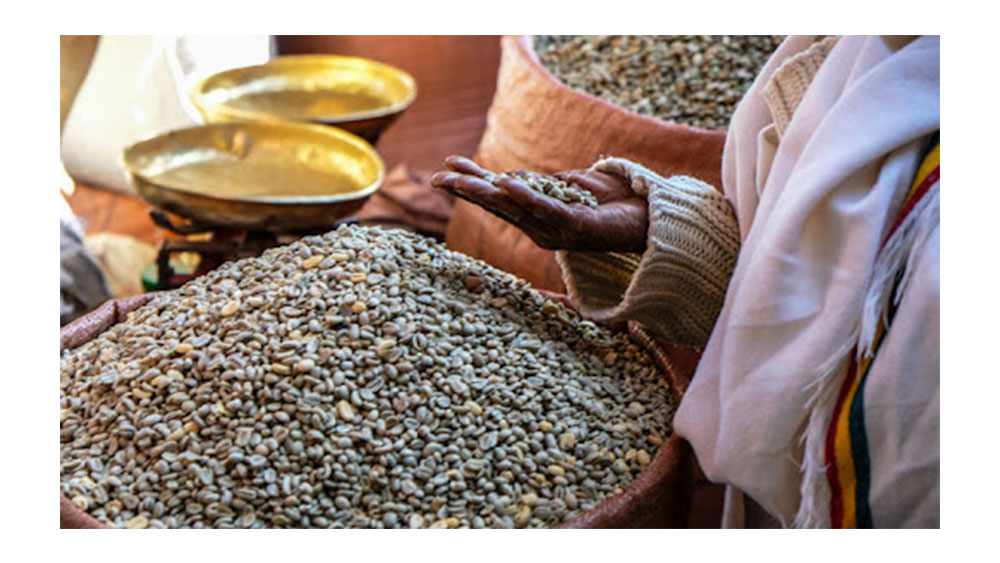
We’re going to start off by talking about African coffee in a very general way, before we talk about some specific countries, and finish with some ideas for very tasty drinks.
What makes African Coffee different from other growing regions?
The thing that makes coffee different in any particular region is the nutrients that it might get from the soil. This can be seen in all sorts of crops, and the concept of ‘terroir’ has long been a thing in the wine world. Essentially, terroir is this: the idea that a specific region has certain nutrients in the soil that can be tasted in the crops of that region.
While it’s tricky to be sure of any terroir for a while at the start of an industry, and there are certainly some new players in the world of African coffee, it would be foolish of is to pretend that African coffee doesn’t have something of a terroir. African coffee, and Ethiopian coffee, in particular, is reputed to have a fairly dark, intense flavor that’s often accentuated by dark coffee roasts.
Something that we do want to briefly touch on before we delve too deeply into this article is that the climate in Africa is quite different from anywhere else in the world. It’s generally considered to be a little drier, so there isn’t a true season of heavy rains, as there is in southeast Asia. Instead, coffee-growing regions maintain a tricky balance between wet and dry seasons.
Throughout Africa, there is a wide range of climates. In the western world, there’s a general misconception that Africa is largely desert, thanks to the Sahara being a large part of the continent’s general image. However, this isn’t the case – there are rainforests, grassy plains, and icy glaciers on the continent. The point that we’re driving at is quite simple – this diverse weather and climate means that coffee plants from different regions are liable to taste quite different. Different weather patterns will disturb soil in unique ways, leading to unique beans. When climate change is added to the equation, the result can be some utterly unique weather patterns and, in turn, unique coffee.

Ethiopian Coffee
Ethiopia is considered to be coffee’s homeland in a very real way. It’s the largest producer of coffee in Africa, and there is a culture of drinking the brew throughout the country. The crop itself grows wild throughout the country, and there are over a thousand different varieties of coffee plant throughout the country itself.
The most renowned coffee region in Ethiopia is the town of Yirgacheffe and the surrounding area. This one town produces a vast amount of coffee that is exported all over the world.
Interestingly, Ethiopian coffee is rarely roasted to a very dark level – it is considered that this would mask the subtle nuances of flavor to be found in the high-end beans.
A Yirgacheffe coffee that we’re particularly fond of is this one, from Amazon. It’s a great example of what the coffee region can produce, especially considering that it’s roasted to a quite light degree. This means that the citrus and berry notes of the coffee come through very well!
Kenyan Coffee
Kenyan coffee is quite different from Ethiopian coffee, in that it has very little of the natural process to it at all. Kenya, as a country and government, has invested a lot of time and money into researching coffee production to quite an intense degree.
There is a national government-run coffee auction in Kenya every single week, where coffee growers will take their beans to the auction for roasters and dealers to bid on them. This process is considered fair and transparent, allowing farmers to get higher prices for beans that are objectively better quality compared to other offerings.
The most-adored Kenyan coffee varieties are SL-28 and SL-24. These coffee varieties have quite odd names, at first appearance, and that’s for a good reason: Scott Labs developed the plants. These specifically selected and selectively bred coffee beans have some fascinating flavors.
Finally, an important note is that Kenyan beans are rated by the coffee auction body. This state-sponsored organization rates beans on a wide variety of factors, but the upshot is really quite simple – AA is the highest ranking that a coffee bean can get, meaning that those beans are typically the largest and the most valued.
One particular roast that we really like is this one, again from Amazon. This roast is something that highlights the best of the best, the AA beans. This also highlights the value that a very dark coffee roast can have on a really high-quality bean, leading to some rich flavors and stone-fruit notes.
What drinks might African coffee taste good in?
There is a range of drinks that an African coffee might taste good in since there is such a range of African coffees!

A lighter African coffee, such as the Yirgacheffe option that we mentioned above, would be interesting to taste in an espresso format. The reason for this is that typically, dark roasted beans are ground to espresso fineness more easily, leading to the drink having darker flavors.
We would be really interested to see a specialty coffee brewer dial in some light roast coffee beans to make a fascinating drink.
Conversely, while a dark roast coffee would typically be reserved for espresso brewing, we would love to see a whole cup made with a typical pourover-style system. Since there is more coffee, the flavors can be a little more drawn out, which would highlight lighter, acidic notes such as citrus or stone fruit.
Conclusion
African coffee is a complex world, and we’d encourage anyone to dive in – we’re sure you won’t regret it!

